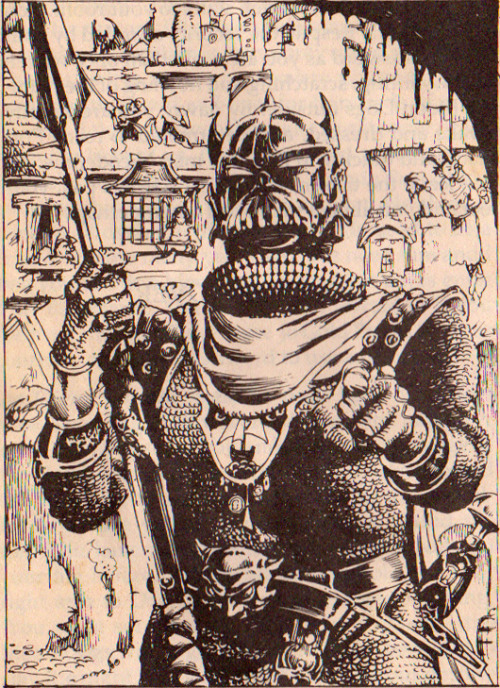I think Wyatt is giving advice on pacing for a situation (encounter, challenge) focused game. He is saying, in effect - If your game is about situations (and 4e is such a game) then don't faff around on other stuff.
As the OP said, if the guards at the gate
are a situation, then you don't gloss over it. You run a skill challenge, or a combat, or whatever.
The spirit of the quote, and of 4e (as I read the books) is,
no exploration for exploration's sake.
My personal view is that the sort of exploration Wyatt is poo-pooing in his quote is exploration which is used by players to add colour to a game in which they otherwise have little capacity to affect the content of the game. (There may also be some players who really enjoy exploration for exploration's sake. My own hypothesis is that they are a minority - I think most want to engage the game in a more meaty fashion than that. Admittedly, in making this judgement I can only draw on my own experience.)
In a game in which players have the capacity to add not just colour but plot - in virtue of the way their PCs engage the situations with which the GM confronts them - then the sort of "colour scene" that Wyatt is criticising becomes redundant.
I think there is some weak advice in the 4e rulebooks - the advice on running skill challenges, for example, pales in comparison to that in mechanically comparable systems like Maelstrom Storytelling and HeroWars/Quest. And the best advice on how to use story elements in encounters if found in the pre-release Worlds and Monsters - the DMG talks only about tactical elements, not story elements. But Wyatt's advice I don't consider weak advice. In my view it's pretty solid advice on how to run a situation-focused, non-exploratory RPG. Don't faff around. Don't make your players faff around. Cut to the chase.
Here is
similar advice from one of the Burning Wheel designers, in the context of using Burning Wheel to run classic D&D modules:
Pushing Conflict Early
Also, it seems that every module I pick up has the structural integrity of mushy peas. You'll have to take it into your own hands. Front load conflict. The first module I ran . . . had the players join up with a caravan in a town and described days of journey before it got to the point that something happened (other than random encounters, natch). We're talking potentially hours of play before something significant happens. . .
If your module starts with pages of journey and exposition before anything happens, give the players a few sentences of synopsis and fast forward to the good stuff.
At the same time, use this opportunity to foreshadow the big stuff that will be coming down the road at them later.
Ignore Filler
A lot of obstacles and opposition in modules is filler. It's there to take up time, to provide a reason for the niche skills of one type of character, or to make the experience seem "real." It's ok to leave a few of these in for old time's sake, but mostly, unless
it's something your players will really get a kick out of, just go ahead and invoke the Say Yes or Roll Dice rule. Give maybe a sentence describing how the characters overcame the obstacle and move on.
I don't think this is very controversial advice on how to run a tight game for Burning Wheel, and as I said recently on another thread (I can't remember which one) I'm surprised that the essentially identical advice from Wyatt still causes such outrage.
EDIT: It was
here and
here on the recent WotC layoffs thread.




